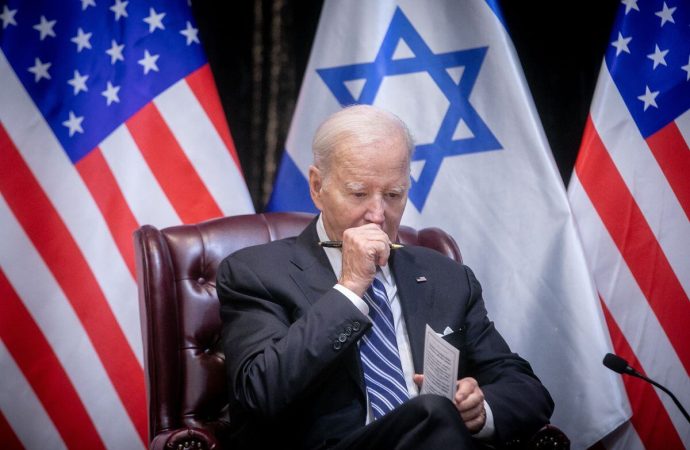The ongoing conflict between Ukraine and Russia has not only been a test of resilience for the Ukraine’s people but also a geopolitical flashpoint with global ramifications. In recent statements, President Joe Biden has reaffirmed the United States’ unwavering support for Ukraine in its struggle against Russian aggression. This commitment marks a significant shift in
The ongoing conflict between Ukraine and Russia has not only been a test of resilience for the Ukraine’s people but also a geopolitical flashpoint with global ramifications. In recent statements, President Joe Biden has reaffirmed the United States’ unwavering support for Ukraine in its struggle against Russian aggression. This commitment marks a significant shift in U.S. foreign policy towards Eastern Europe and underscores the strategic importance of Ukraine in the broader context of international relations.
Biden’s Declaration of Support

This image is taken from google.com
President Biden’s vow to stand by Ukraine “until they prevail in this war” represents a definitive stance against Russian encroachment in the region. The pledge, made during a meeting with Ukrainian President Volodymyr Zelensky, signals a departure from the ambiguity that characterized U.S. policy towards Ukraine in previous administrations. By explicitly stating the U.S. commitment to Ukraine’s territorial integrity and sovereignty, Biden aims to bolster Kiev’s position in its confrontation with Moscow.
Analysis of Biden’s Statement
Biden’s declaration of support for Ukraine carries several implications. Firstly, it underscores the broader strategic objectives of the United States in countering Russian influence, not only in Eastern Europe but also globally. By backing Ukraine, the U.S. aims to thwart Russia’s attempts to assert dominance in its neighboring states and maintain a balance of power in the region. Moreover, Biden’s statement serves as a reaffirmation of America’s commitment to its allies and partners, signaling that the U.S. will not hesitate to defend democratic principles and international norms.
Implications for U.S.-Russia Relations
Biden’s unequivocal support for Ukraine is likely to strain an already tense relationship between Washington and Moscow. The Kremlin has repeatedly voiced its opposition to U.S. involvement in the region, viewing it as meddling in Russia’s sphere of influence. Consequently, Biden’s stance could exacerbate existing tensions and lead to further diplomatic friction between the two nations. However, it also sends a clear message to Moscow that the U.S. will not acquiesce to Russian aggression and is prepared to respond robustly to any attempts to undermine Ukraine’s sovereignty.
Comparative Analysis
| Aspect | Biden’s Pledge to Ukraine | Implications |
|---|---|---|
| Diplomatic Relations | Strengthens ties | Strains U.S.-Russia relations, potential for conflict |
| Regional Stability | Supports Ukrainian sovereignty | Risks escalating conflict, but deters Russian aggression |
| Geopolitical Dynamics | Counters Russian influence | Increases tension, potential for proxy confrontations |
| International Norms | Upholds democratic principles | Challenges authoritarianism, promotes global stability |
Conclusion
President Biden’s pledge of unwavering support for Ukraine’s reflects a significant shift in U.S. foreign policy towards Eastern Europe. By standing firmly behind Kiev in its struggle against Russian aggression, the United States reaffirms its commitment to defending democracy and upholding international norms. However, this commitment also carries risks, as it may further strain relations with Moscow and escalate tensions in the region. Nevertheless, Biden’s declaration underscores the strategic importance of Ukraine in the broader context of global geopolitics and reaffirms America’s role as a defender of democratic values.
















